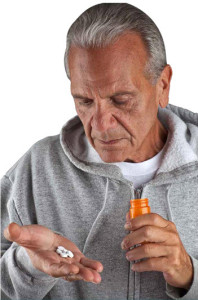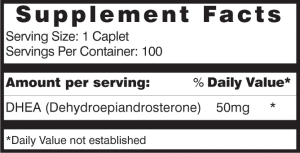Top 7 Best Testosterone Boosting Foods
The proper, healthy Man Diet is absolutely key to not only good, sustainable health and longevity, but also to maintaining a viably productive and powerful testosterone level. And we say Man, because the nutritional facts are that we males require a distinctly differing amount of similar foods than the fairer sex, while also requiring a differing variety of the best testosterone boosting foods for our optimal testosterone health. Top 7 Best Testosterone Boosting FoodsOf course our Top 7 Superfoods and testosterone boosting foods are healthy and nutritious for everyone, but men in particular should pay special attention. Introduce these foods to your diet regimen, and you’ll feel the results right away.Garlic
This Old School herb and Paleo-Superfood is perhaps one of the healthiest overall ingredients you can add to any diet regimen. Excellent as an immune system booster, garlic is an all-natural additive that has been shown to boost testosterone levels. In addition to its many health benefits, garlic is just plain delicious!Pills and powders are OK, but eating real garlic is best.Coconuts
A key source of healthy monounsaturated fats, the delicious coconut will help boost your testosterone levels without packing on the blubber. In addition, you need not worry over any negative cardiovascular effects from this hard-shelled, hairy nutrition monster. In smoothies, with desserts, in milks, coconuts are a reliable testosterone booster.And don’t forget coconut oil as a cooking additive!Avocados
A very simple equation is less cholesterol equals more testosterone, and the awesome avocado is a full of cholesterol-busting good fats that will allow the testosterone to grow, as well keep your arteries in good working order.Grapes
Grape skins are loaded with all-important resveratrol (a plant-based polyphenol), which plays a crucial role in overall sperm health and motility with a corresponding increase in Testosterone levels. In addition, emerging research is finding that resveratrol, taken in large amounts, just may be a longevity super-additive. So eat grapes and live longer and healthier.Red Meat
A very simple equation is less cholesterol equals more testosterone, and the awesome avocado is a full of cholesterol-busting good fats that will allow the testosterone to grow, as well keep your arteries in good working order.Honey
An excellent sugar substitute, honey is loaded with nitric oxide and boron, an important testosterone boosting mineral. Nitric Oxide is the key ingredient to many ED drugs as it dilates the blood vessels and promotes better blood flow for an erection.Eggs
As we previously mentioned, the Omega-3 rich egg is also a protein powerhouse and a sure testosterone firecracker!Here is one extra one that doesn’t boost testosterone but helps you manage your Estrogen levels!!Cabbage is rich in indole-3-carbinol, a metabolic chemical that effectively flushes any floating estrogen from your system and as a result, lets your testosterone run wild. It doesn’t matter if your tastes run to kimchi or corned beef and cabbage. Just get that leafy goodness in you!Contact Us
If you’re ready to increase your testosterone levels, contact us today to schedule a free consultation.Top 7 Best Testosterone Boosting Foods
Hormone Therapeutics April 18th, 2023
Posted In: Health & Wellness, Testosterone Therapy
Tags: arteries, avocados, coconuts, diet, ED, eggs, erection, garlic, grapes, honey, indole-3-carbinol, lean, monounsaturated fat, muscle, natural testosterone therapy, nitric oxide, Omega-3, paleo, polyphenol, red meat, resveratrol, superfoods, testosterone, testosterone boosting foods, testosterone diet, testosterone foods
How does Testosterone Affect Sexual Health?
Can testosterone improve sexual health?
Many factors fuel the sexual health of men as well as their sexual performance, ability to perform and changes in their ability to function as they once could. Low testosterone plays a significant factor in all of these and treating Low T can improve interest in sex, sexual function and sexual performance.
The Effects of Low T on Sexual Health
While we do understand that testosterone production comes from a healthy HPA Axis, or communication between your Hypothalamus, Pituitary Glands, Adrenals and Testicles, science still does not understand exactly how testosterone improves sexual health or performance. As you probably noticed in High School, College or amongst your friends, there is no normal level of sexual interest amongst men or women.
Like your testosterone levels, it peaks around 19 and usually slowly declines for the rest of your life. Each person takes a different path, however, and declining sexual interest is typically tied to declining testosterone levels. These levels can follow a steady decline, or can be accelerated by health issues, stress, poor sleep and even by keeping sexually active. Many men can lose sexual interest at normal testosterone levels or maintain sexual health even at low testosterone levels but as testosterone levels get depleted it will universally effect sexual interest and performance.
One study of Men in the NE of the US showed 11% of men had a lack of sex drive. The researchers also found 28% of men with low testosterone levels had a low libido which means that men with low testosterone levels were 256% more likely to have low sex drive or low libido. The average age of the study participants was 47.
Low Testosterone and Erectile Dysfunction

Erectile Dysfunction, or ED, can be caused by many health problems including low testosterone, atherosclerosis (hardening of the arteries), diabetes, high blood pressure and high cholesterol. Those last three items all cause hardening of the arteries. If they are damaged, the penis has difficulty dilating and bringing sufficient blood flow required for an erection. Testosterone therapy can lead to increased libido and interaction and connection between the brain and penis.
Viagra is an example of an oral PDE5 inhibitors that encourage an increase in nitric oxide which dilates the blood vessels and encourages more blood flow to the penis. Three potent selective PDE5 inhibitors (sildenafil (Viagra; Pfizer), tadalafil (Cialis; Lilly), and vardenafil (Levitra; Bayer)) are currently available. Testosterone therapy will often increase the libido and sexual function to erase Erectile Dysfunction, but often our physicians will prescribe a combination with PDE5 inhibitors as well.
Studies are showing that men with classic hypogonadism, or low testosterone, have a reduced response to PDE5 inhibitors and see a significant response improvement with Testosterone Therapy. For patients who fail to see ED improvement following TRT and PDE5 inhibitors we can prescribe and test the direct injectable Trimix.
The Connection of Testosterone Levels and Sexual Health
 While this sounds like a juvenile sex joke, we are now seeing that lowered testosterone levels lead to a decreased sex life, but that a decreased sex life also can lower ones testosterone levels in a study at the University of Sydney in Australia.
While this sounds like a juvenile sex joke, we are now seeing that lowered testosterone levels lead to a decreased sex life, but that a decreased sex life also can lower ones testosterone levels in a study at the University of Sydney in Australia.
Researchers followed 1,700 men over the age of 70. The study asked questions and measured a number of things. The study tracked the ability to keep and maintain an erection. It measured the frequency that sexual activity led to ejaculation (through masturbation or sexual intercourse). The study also tracked libido and sexual health versus earlier times in their lives.
During the study, all of the men had blood tests regularly taken and the following tests measured: Total Testosterone, Free Testosterone, Estrogen, SHGB and some other hormones.
Researchers discovered a 10% reduction in testosterone levels led to a noticeable decrease in sexual activity but no change in the number of erections. Another study showed that testosterone levels increased on night after sexual activity without any increase on nights where there was no sexual activity. Physicians are concerned that a lack of sexual activity can accelerate low testosterone.
 A further study showed that men taking Cialis had higher testosterone levels than men taking Viagra. Both drugs are PDE5 inhibitors to boost nitric oxide and blood flow to the penis. Cialis, however, last 36 hours for most people rather than 6-8 hours. Cialis users typically have more intercourse over this extended time period.
A further study showed that men taking Cialis had higher testosterone levels than men taking Viagra. Both drugs are PDE5 inhibitors to boost nitric oxide and blood flow to the penis. Cialis, however, last 36 hours for most people rather than 6-8 hours. Cialis users typically have more intercourse over this extended time period.
The researchers concluded that “as it is unlikely that the two drugs have a different direct effect on the pituitary-testis axis, this effect is probably due to the higher frequency of full sexual intercourse.”
A Chinese study observed a group of men that abstained from ejaculation for one week and had their testosterone levels tested each day. Research showed that abstaining for 6 days had no effect on testosterone levels, however, on the seventh day the testosterone levels surged to 145.7% of the baseline then plummeted on the 8th day.
The researchers believe the testosterone surge was the result of a negative feedback suppression of Luteinizing hormone (LH secretion) which is essential for testosterone production.
Hormone Therapeutics aims to help people looking to improve and optimize their health through natural means or through the guidance of our physicians.
Don’t miss out our free weekly tips and news on Low T, hormone balancing, healthy living, nutrition and a lot more.
Want more?

Sign up today and Get our ebook, ‘Naturally Increase Your Testosterone Levels’ absolutely FREE.
How does Testosterone Affect Sexual Health?
Saleamp Design November 15th, 2016
Posted In: Low T Info
Tags: atherosclerosis, Bayer, blood flow, boner, Cialis, diabetes, dilates, ED, erectile dysfunction, erection, high blood pressure, high cholesterol, hypogonadism, inhibitors, intercourse, Levitra, LH, LH secretion, libido, Lilly, Lutenizing hormone, nitric oxide, PDE5, PDE5 inhibitors, penis, Pfizer, pituitary, sex drive, sexual health, sexual performance, sildenafil, tadalafil, testes, testicles, testosterone level, testosterone therapy, trimix, TRT, vardenafil, Viagra
Linking Erectile Dysfunction and Low Testosterone
 Erectile dysfunction is a common problem that affects many men. This being said, it is important to explore its causes and how it can be addressed. Because of testosterone’s prominence in men’s sexual function, it has been explored as a determining factor in erectile dysfunction. The following study describes how erectile dysfunction and low libido may be related to available testosterone in the body. It also examines how supplementing this testosterone deficiency may provide a better for you.
Erectile dysfunction is a common problem that affects many men. This being said, it is important to explore its causes and how it can be addressed. Because of testosterone’s prominence in men’s sexual function, it has been explored as a determining factor in erectile dysfunction. The following study describes how erectile dysfunction and low libido may be related to available testosterone in the body. It also examines how supplementing this testosterone deficiency may provide a better for you.
Different Types of Testosterone for Erectile Dysfunction
Many do not know that there are different types of testosterone in the body and that it is important to take note of their individual levels within a person’s system. The testosterone level measured when men go to the doctor is typically limited only to Total Testosterone. Patients only get the sum of unbound and bound testosterone present in the patient’s system.
The problem with this that the total amount of testosterone measured is not always fully available for use. Because of the presence of bound and unbound testosterone in the system, the Total Testosterone measurement for a person may not equal the precise amount of testosterone he is actually able to utilize. This is called Free Testosterone.
This is because bound and unbound testosterone are indicators of whether or not a testosterone can be immediately used by the body this Free Testosterone is a more important measure. A bound testosterone is one attached to proteins that need prior removal before it can be used, thereby needing some effort to be utilized. One of the proteins that binds to testosterones is albumin. While albumin does attach to testosterones, it is easily removed by the body when the testosterone is needed.
However, there are also particularly stubborn binding proteins that cannot be removed from the testosterone, thus rendering it unusable. An example of this is the Sex hormone binding globulin, or SBHG. Once SBHG attaches to your testosterone, it becomes unusable due to the difficulty of separating the protein from the testosterone, limiting the amount of available testosterone in the body.
The differences in functions and availability of these kinds of testosterone highlight the need to test for different types of testosterone. In studying testosterone levels in the system, it’s important to take into account the level of total testosterone, bio-available testosterone and free testosterone, along with the prevalence of SBHG proteins in the patients.
Free testosterone refers to unbound testosterones which are readily available to the body and thus, can be used with minimal effort. Bio-available testosterone, on the other hand, corresponds to both the free testosterones and testosterones bound to easily removed proteins such as albumin. SBHG limits the amount of Bio-available testosterone, giving a skewed amount of usable testosterone when analyzing the total count.
Erectile dysfunction’s relationship to your testosterone levels
Because of testosterone’s role as a primary sex hormone that establishes male traits and sex drive, research has been made to explore how testosterone levels and erectile function influence each other.
According to the study, there exists a proportional correlation between testosterone levels and erectile function, linking higher levels of the hormone with an increased sex drive and better erections. In addition to this, it also established that low testosterone levels was consistently present in cases of erectile dysfunction, and that low presence of the hormone may hamper erectile dysfunction medications such as Viagra from working properly.
Ultimately, the study concluded that a low amount of free testosterone coupled with high levels of SHBG posed the highest risk for erectile dysfunction in men, emphasizing the importance of monitoring testosterone levels when addressing the problem. Taking from the study, it goes that while there are many factors that can contribute to erectile function, it is useful to check testosterone levels because it was seen as a consistent influencing factor for erectile dysfunction as based on the data.
Because of testosterone’s effect on erectile dysfunction, aging men who are experiencing its symptoms are advised to first take a testosterone blood test that can measure the amount of total testosterone, free-testosterone and SHBG in their system. Because ultimately, it is free testosterone that determines the ready supply of the hormone in men, testing total testosterone may not provide sufficient information regarding one’s actual hormone levels. By testing all levels of testosterone, doctors may be able to determine if it is this deficit in available testosterone that hampers proper erectile function and sexual performance, providing the patient with better options of addressing the problem.
Hormone Therapeutics can help you learn more about testosterone
With the emergence of treatments for low testosterone levels today, you don’t have to bear its consequences anymore. This is why we have so many wives reaching out to us as well to find help for their loved one. Hormone Therapeutics can help you determine if low testosterone that is causing your sexual problems and provide testosterone replacement therapy, to remedy your concerns. We can treat with testosterone therapy, and/or erectile dysfunction treatments.
If you want to learn more about how to monitor your testosterone levels or fix low testosterone concentration and its consequences, our company can help you clear up your reservations. Give us a call and we’ll be happy to assist you as you take your first step towards improving your quality of life.
Linking Erectile Dysfunction and Low Testosterone
Saleamp Design April 5th, 2016
Posted In: Low T Info
Tags: albumin, Cialis, depression, ED, erectile dysfunction, erection, fatigue, free testosterone, impotence, libido, low libido, low t, low testosterone, sex, sexual function, SHGB, testosterone, Total Testosterone, Viagra
DHEA Benefits and Frontiers
 Dehydroepiandrosterone (DHEA) is a naturally occurring hormone produced in the body. Secreted by the adrenal glands, it is precursor to other hormones and is transformed by the body into specific hormones once it reaches the target tissue. As a prohormone, most of it effects are related to its end products as opposed to DHEA itself.
Dehydroepiandrosterone (DHEA) is a naturally occurring hormone produced in the body. Secreted by the adrenal glands, it is precursor to other hormones and is transformed by the body into specific hormones once it reaches the target tissue. As a prohormone, most of it effects are related to its end products as opposed to DHEA itself.
DHEA is gaining traction as an anti-aging supplement. It is also being explored as a treatment for several of the health conditions associated with aging.
DHEA and its effects
DHEA is often touted as a “youth restoring” hormone because of its reputation for slowing down the age process, improving general energy levels and cognitive skills. Because of this, many see it as a solution to regulate the side effects of aging and hormone depletion.
DHEA supplementation has shown an increase in energy, cognitive concentration, greater muscle mass/retention and slowing down the progression of Alzheimer disease. DHEA has been shown to have an influence on erectile dysfunction and lack of sex drive. In addition, Men with low DHEA more often experience depression as well as higher risks for overall mortality, including heart failure and cardiovascular threats.
DHEA Decline with Age
Unfortunately, DHEA production declines as its importance increases. DHEA production reaches its highest point during the 20s, but as one grows older, the body’s DHEA production decreases, leaving as little as 20% of the healthy output by the time one reaches 70.
Since it is a precursor to other hormones, this decline leads to a corresponding effect in other hormones as well. Estrogen and testosterone synthesis, in particular, wane once the DHEA levels decrease. This brings forth several consequences for both sexes. In men, specifically, age-related DHEA decrease leads to a decline in testosterone secretion. This decline is compounded because of the larger role DHEA plays in the production of testosterone as we age.
DHEA Supplements and their Effects
From trials, DHEA supplements have been shown to increase muscle mass, strength and physical well-being in general. In addition, tests of increased concentration, in men and women, have been shown to improve sexual potency and mood, with women experiencing less menopausal symptoms after taking supplements. Overall, DHEA has been seen as an anti-aging supplement, providing bone and muscle strength, better moods and immune system and increased memory.
When tested on patients with diabetes and neurological disorders, DHEA was not seen to improve erectile function and potency in patients. It has also been shown to exhibit minimal side effects such as mild acne, swollen ankles and increased facial hair in some women.
The effect of long term treatment on cardiovascular conditions and hormone-dependent tumors has not yet been studied, or have yielded conclusive results.
DHEA Frontiers
DHEA supplements for anti-aging purposes are currently gaining traction. As a precursory hormone, it is seen by many as a way to regulate hormone balance within the body. In addition, DHEA’s reputation in increased bone and muscle strength, as well as energy, has many physicians exploring DHEA supplements and its effect on bone growth, depression, and other mood and cognitive disorders.
Hormone Therapeutics
Hormone Therapeutics specializes in endocrine and hormone-related treatment, and is committed to finding the best treatment for your well-being. If you’re curious about how DHEA supplements can improve you and your life, Hormone Therapeutics can provide the answers for you. Call us today!
Do You Need Help?
Hormone Therapeutics is the leading national company assisting men who want to get their lives back through Hormone Replacement and Testosterone Replacement therapy. Our local physicians are ready to treat you anywhere in the entire country. Hormone Therapeutics is pioneering an easier, cost efficient and more private way for you to work with our clinical advisors and physicians from the privacy of your home or office after your local physical exam confirms you have one of the symptoms of Low T.
Contact us today and our clinical advisors will work with you on a hormone therapy program that may include prescribed hormones, exercise, nutrition and sleep programs to reclaim your vitality.
DHEA Benefits and Frontiers
Saleamp Design April 1st, 2016
Posted In: Health & Wellness
Tags: brain, brain fog, cardiovascular issues, Cialis, Dehydroepiandrosterone, depression, DHEA, ED, energy, erectile dysfunction, fatigue, hair loss, happiness, heart attack, low t, low testosterone, memory, muscle loss, muscle mass, sadness, sex drive, sexual function, stroke, supplements, testosterone, Viagra


